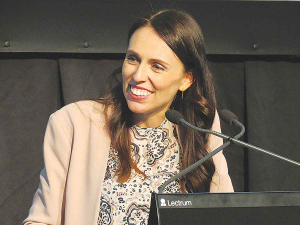M.I.A.
OPINION: The previous government spent too much during the Covid-19 pandemic, despite warnings from officials, according to a briefing released by the Treasury.
 When Covid-19 first arrived on NZ shores, PM Jacinda Ardern made great play of the fact that the primary sector would be the saviour of the economy.
When Covid-19 first arrived on NZ shores, PM Jacinda Ardern made great play of the fact that the primary sector would be the saviour of the economy.
OPINION: When Covid-19 first arrived in New Zealand, PM Jacinda Ardern made great play of the fact that it would be the primary sector - and that means rural NZ - would be the saviour of the economy.
Agriculture and the supporting processing and supply chain workers and farmers were deemed essential, and to their great credit these people have delivered 100% and more.
But if perchance, or maybe out of morbid curiosity, you tune into Jacinda's daily sermons from the Beehive, you would struggle to hear the word 'rural' mentioned these days.
The vaccine roll-out has been urban driven with percentage rates in Auckland hailed and glorified. It seems to be all about high population numbers, which also means votes, or is that being too cynical?
While low vaccination rates are in the Beehive narrative, what is not coming through is that many of the very low vaccination rates are in clusters in rural areas - often Maori and Pasifika who are absolutely essential, in fact critical, workers for the success of NZ's economic failure.
They often form the bulk of the workers in the meat processing plants and perform other essential roles in rural areas.
It would appear that the Government and the Ministry of Health officials stupidly think that urban based solutions for dealing with Covid can somehow be shoehorned or made to fit in rural areas.
It's time these people started listening to people like Fiona Bolden (chair Rural GP Network) and other rural GPs and health professionals and get a few facts under their belts before joining the cheerleaders' party at the Beehive.
Regional NZ has been short-changes by successive governments: we have sewerage leaks in the hospital in Whangarei, only four ICU beds in Rotorua and Dairy News has been told that one DHB servicing a large rural area has closed off its waiting list for people wanting elective surgery.
Now just watch Parliament and see the different parties hold up graphs and put out press releases saying how good they are or have been. The word 'bullshit' readily comes to mind!
It has taken a pandemic to show up the underinvestment in health. The fact is, rural people are deprived of quality health care due to years of neglect and it seems the politicians and policy wonks in Wellington simply don't get, or care, about what happens outside big city boundaries. People will die because of this.
Budou are being picked now in Bridge Pā, the most intense and exciting time of the year for the Greencollar team – and the harvest of the finest eating grapes is weeks earlier than expected.
The Real Estate Institute of New Zealand (REINZ) has released its latest rural property report, providing a detailed view of New Zealand’s rural real estate market for the 12 months ending December 2025.
Rural retailer Farmlands has released it's latest round of half-year results, labeling it as evidence that its five-year strategy is delivering on financial performance and better value for members.
OPINION: "We are back to where we were a year ago," according to a leading banking analyst in the UK, referring to US president Donald Trump's latest imposition of a global 10% tariff on all exports into the US.
DairyNZ says the Government’s proposed Resource Management Act reform needs further work to ensure it delivers on its intent.
Overseas Trade Minister Todd McClay says he's working constructively with the Labour Party in the hope they will endorse the free trade agreement (FTA) with India when the agreement comes before Parliament for ratification.
OPINION: Expect the Indian free trade deal to feature strongly in the election campaign.
OPINION: One of the world's largest ice cream makers, Nestlé, is going cold on the viability of making the dessert.